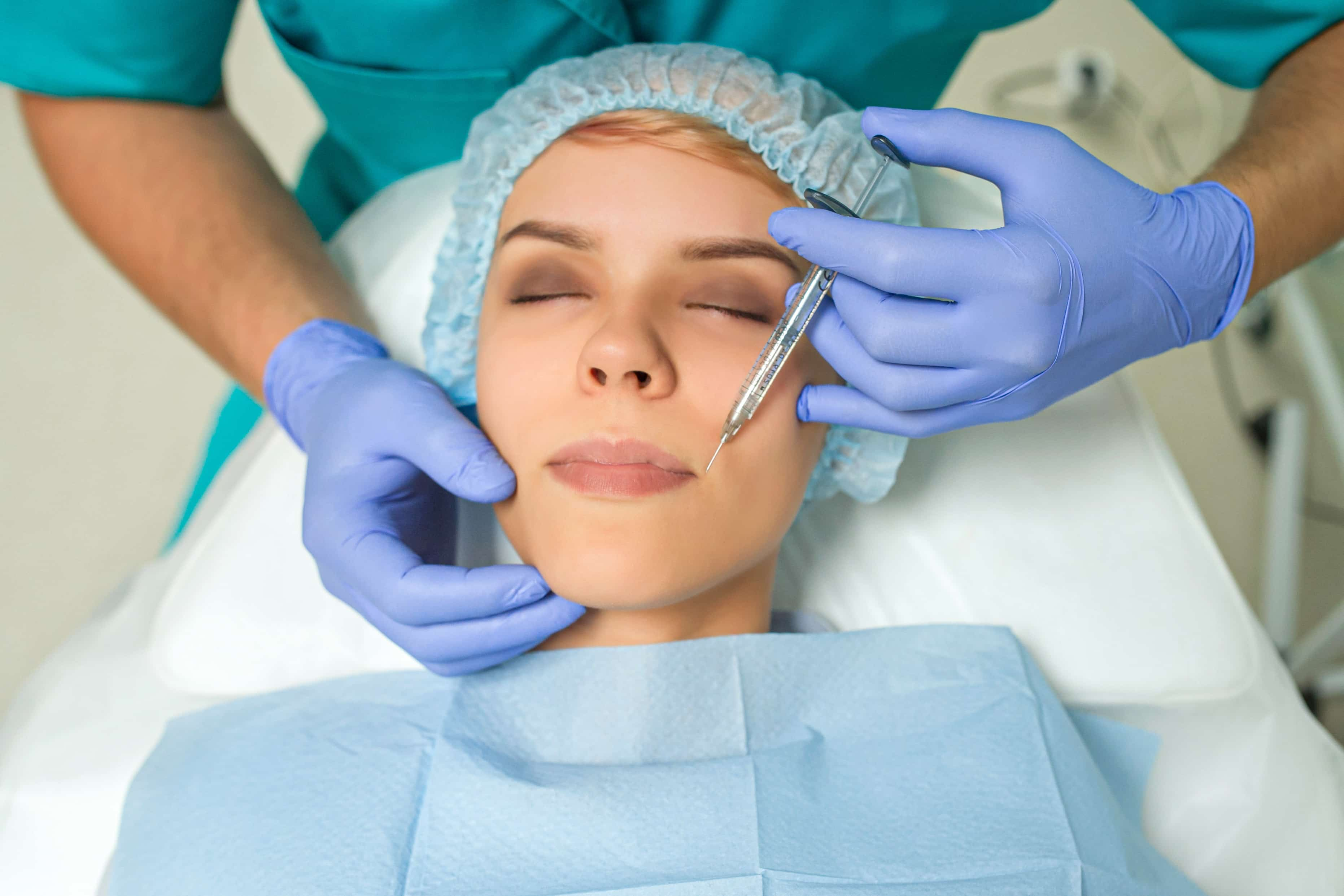
Are you looking for a comfortable and relaxing dental visit in Springvale? Do you feel very nervous about dental procedures or need major dental work and want to sleep through the treatments? Our sleep dentistry services can help with these concerns, allowing you to have a pain-free and calm dental appointment.
Sleep dentistry in Springvale is considered one of the safest and most effective ways to provide high-quality dental care. Sedation dentistry makes it easier for patients to go through difficult treatments by helping them feel relaxed and at ease. With sleep dentistry, patients are able to be comfortable during their appointments and have a much better experience than regular dental visits.
Sleep dentistry can help with problems like:
Sleep dentistry is a great solution for adults and children who are extremely afraid or phobic about going to the dentist.
It involves using general anaesthesia to put patients into a deep sleep during dental procedures.
This approach is especially helpful for those who cannot handle dental treatment while awake due to extreme fear or anxiety. While asleep, patients have no awareness of the procedure, completely eliminating any fear or discomfort.This allows necessary dental care to be done without causing psychological stress or trauma, making it an ideal choice for those with severe dental anxiety.
Sleep dentistry using general anaesthesia benefits adults or children with extremely strong gag reflexes. The gag reflex, which can be easily triggered in some people, makes dental procedures very difficult for patients and dentists. It can cause discomfort and anxiety, and in severe cases, it prevents dental treatment altogether.
In sleep dentistry, general anaesthesia puts the patient into a deep sleep. While under anaesthesia, the gag reflex is inactive, allowing the dentist to perform necessary procedures accurately without interruptions or causing distress for the patient. This ensures patients with severe gag reflexes can safely and comfortably receive essential dental care without stress.

Sleep dentistry using general anaesthesia puts patients into a deep sleep during dental procedures. This is especially helpful for adults and children with special healthcare needs, such as severe anxiety, phobias, or certain medical conditions that make regular dental treatment very difficult.
For these individuals, staying awake for dental procedures can be traumatic or impossible. General anaesthesia in sleep dentistry allows for a completely pain-free and anxiety-free experience, as the patient is unconscious. This approach can be crucial for getting essential dental work done that the patient might otherwise avoid or be unable to tolerate.
In summary, sleep dentistry with general anaesthesia provides a safe and comfortable way for individuals with special healthcare needs to receive necessary dental care without the stress or discomfort often associated with dental procedures.

Sleep dentistry using general anaesthesia is very helpful for complex dental procedures that might be long, detailed, or uncomfortable to have done while awake. These procedures can include:
When a patient needs several surgical procedures, doing them all at once with general anaesthesia can be more efficient and less stressful.
For major dental restorations like multiple crowns, bridges, or implants, general anaesthesia can make the lengthy procedure easier.
Individuals with certain developmental conditions or severe dental anxiety may find complex dental treatments difficult to undergo while awake.
In these cases, sleep dentistry ensures the patient is deeply asleep and unaware of the procedure, eliminating discomfort, fear, and anxiety. It allows the dentist to work efficiently without causing stress.
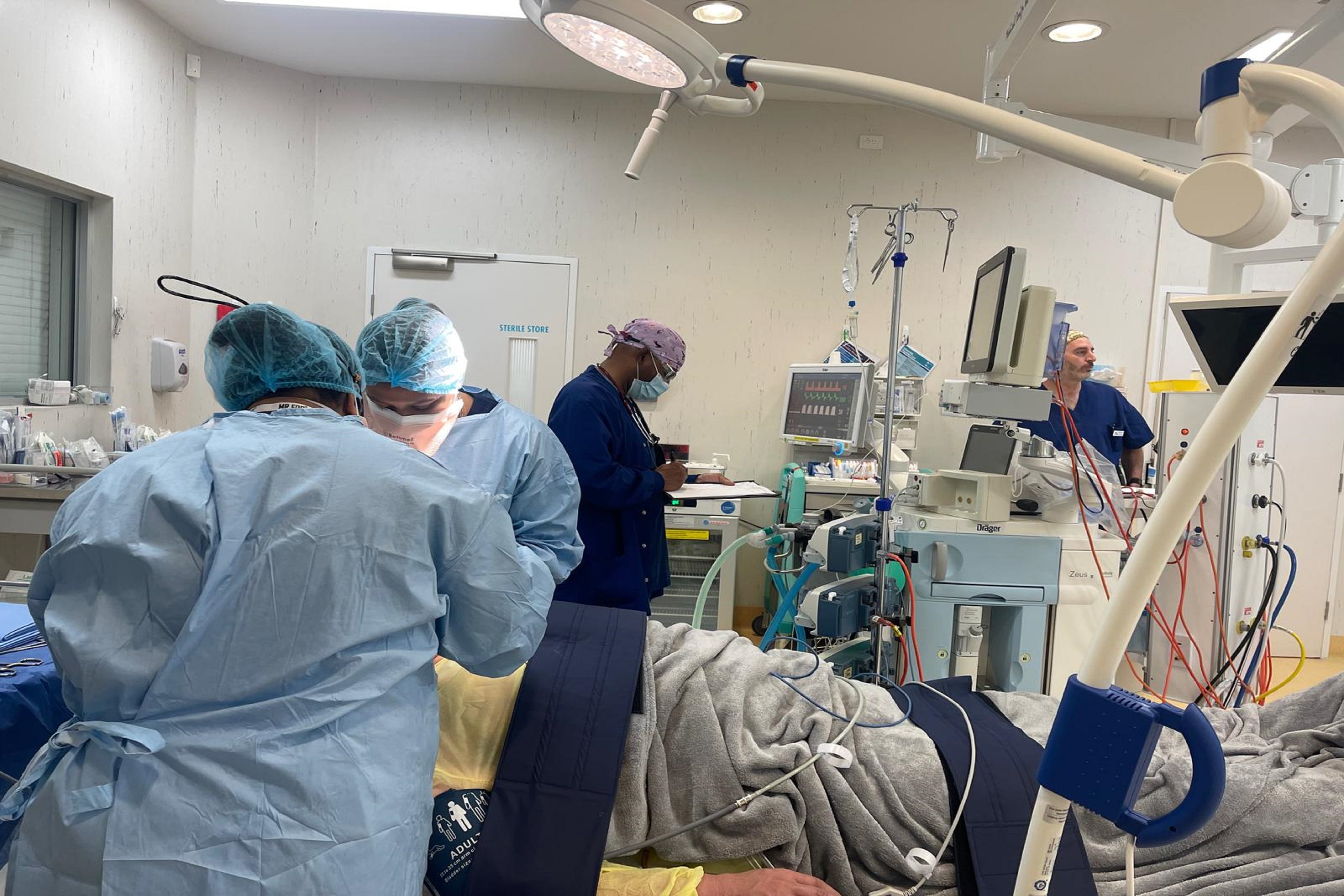
Real People… Real Smiles…
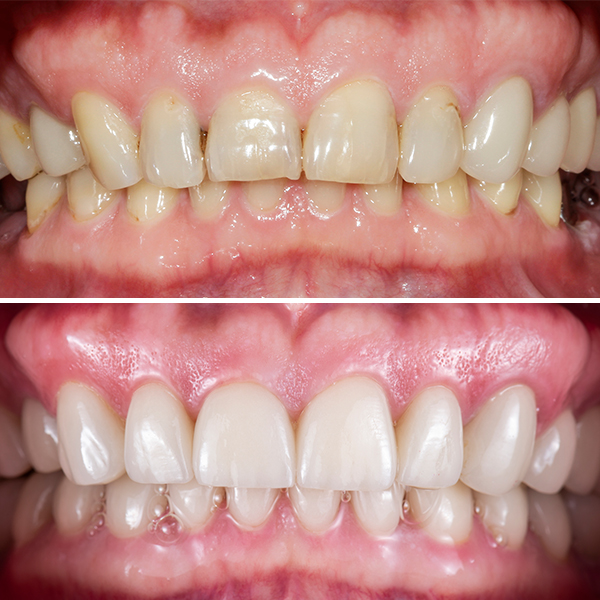
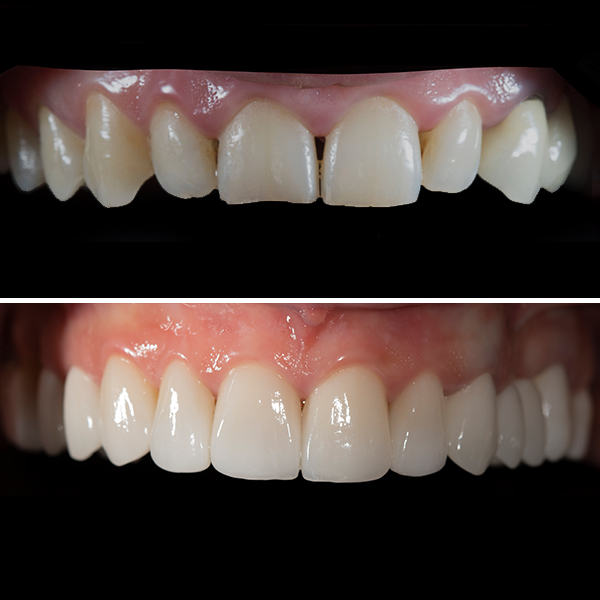
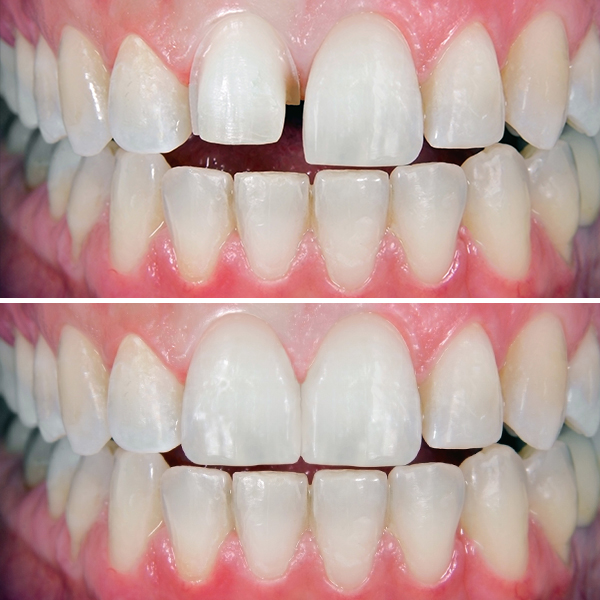
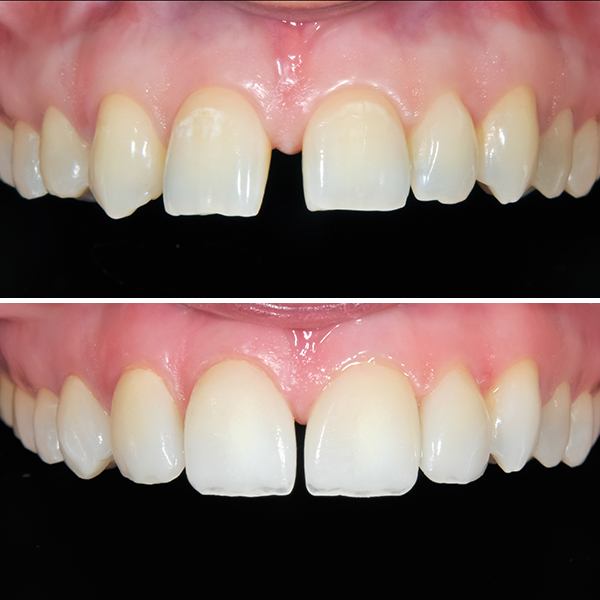
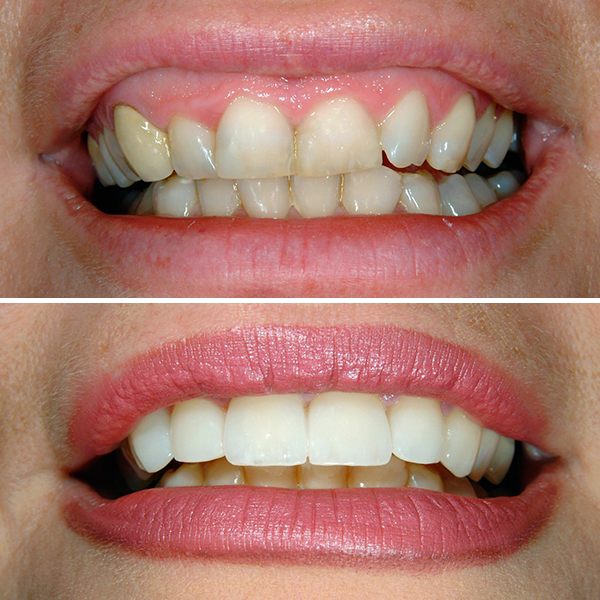
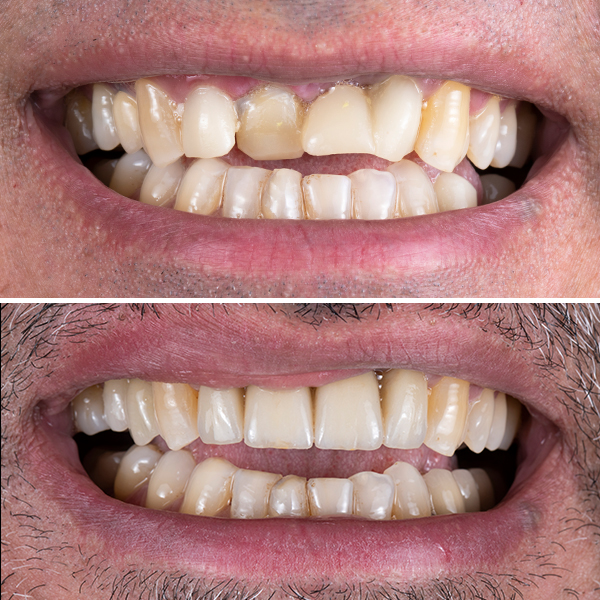
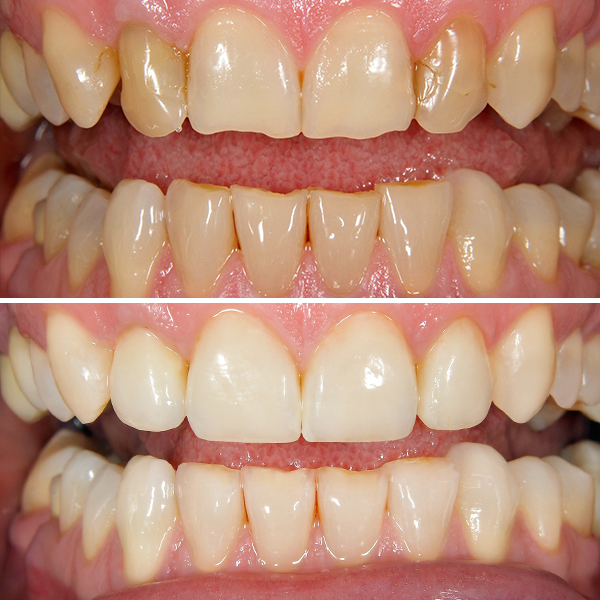
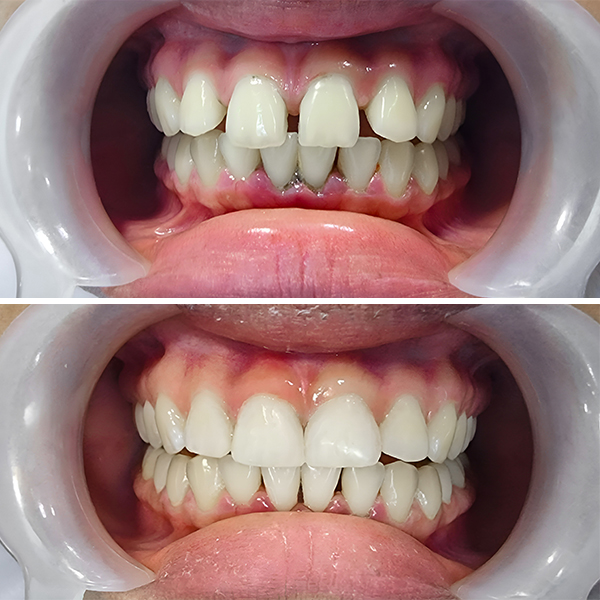
My child is extremely anxious and afraid during dental visits and cannot tolerate even basic procedures. How can we ensure they receive necessary dental care without causing them distress or trauma?
For many parents with very young children, this is an important question. Sleep dentistry using general anaesthesia benefits babies and young children who cannot cope with dental treatments due to their young age, fear, discomfort, or inability to understand and cooperate. Here's how it helps:

Eliminates Fear and Discomfort
Children are fully asleep under general anaesthesia, avoiding the fear and discomfort of dental procedures.

Safe and Efficient
It allows pediatric dentists to safely and accurately perform necessary treatments without causing the child trauma or distress.
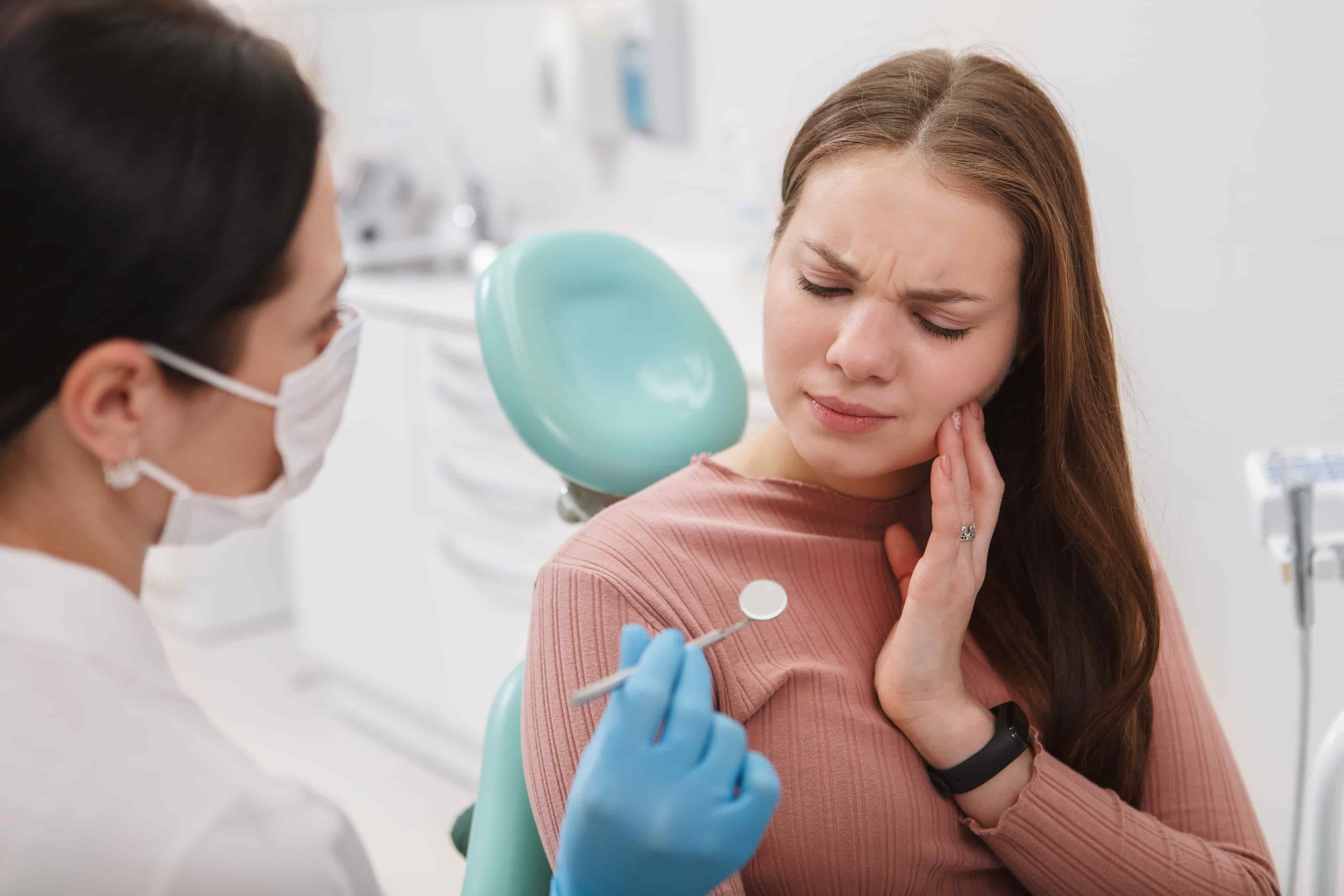
Prevents Traumatic Experiences
Avoiding negative dental experiences at a young age helps foster a more positive attitude towards dental care.
To help children cope:
Preparation and Communication: Explain the process in child-friendly terms beforehand.
Comfort Items: Allow them to have a comforting object like a toy.
Positive Reinforcement: Use praise and rewards after visits to create positive associations.
"Sedation options other than sleep dentistry" refers to alternative ways to relax patients during dental treatments without putting them into full sleep. These options include:
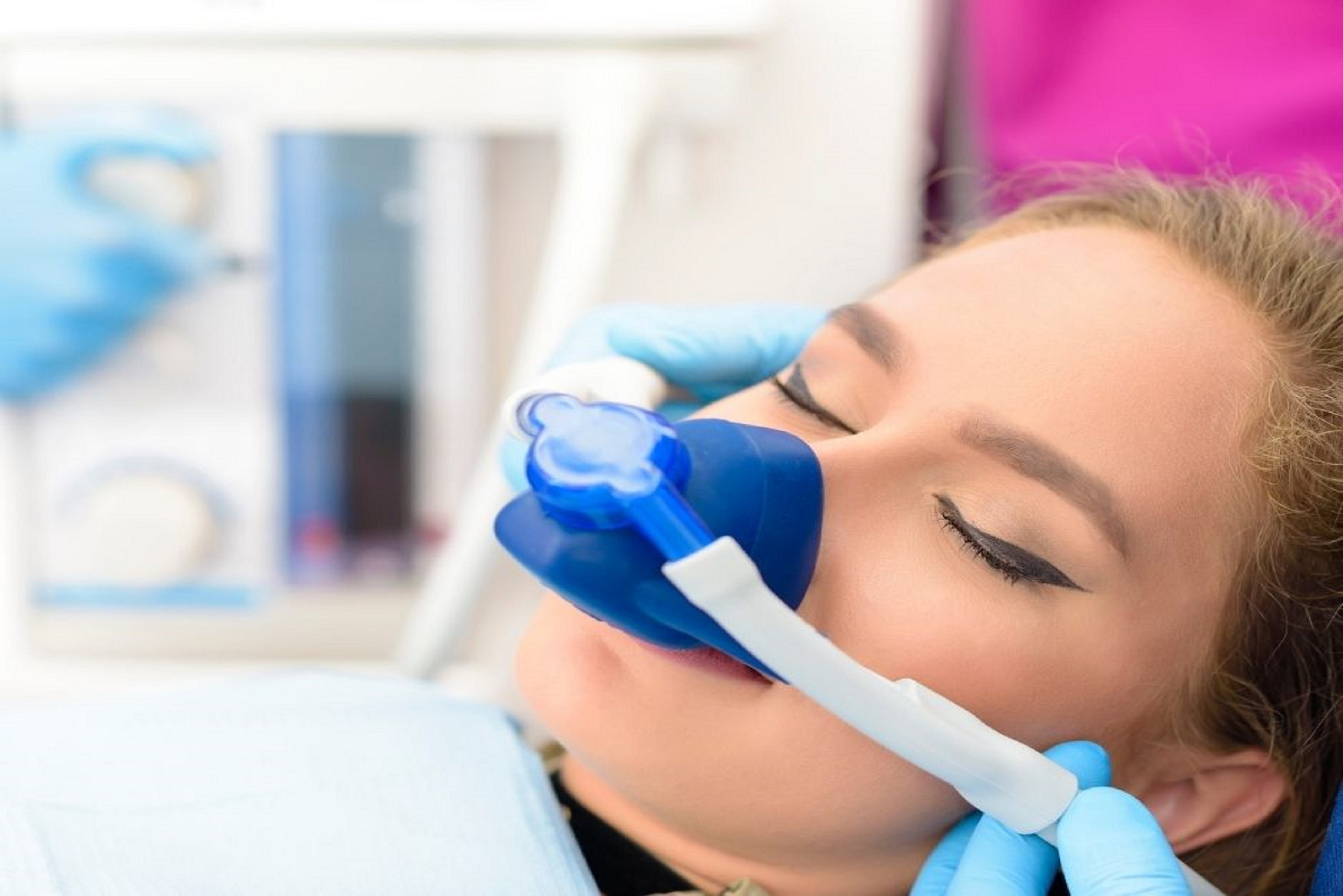
Nitrous Oxide (Laughing Gas)
A mild sedative is inhaled through a mask, helping patients feel relaxed while remaining awake.
Laughing gas is widely used for managing low levels of dental anxiety in both adults and children. When inhaled through a mask, it induces relaxation and reduces anxiety without causing unconsciousness. Patients remain awake and can communicate.
Laughing gas can be used safely in children, typically starting around ages 3-4 when they can understand wearing a mask. However, very young children who cannot cooperate with a mask might not benefit. In those cases, sleep dentistry with general anaesthesia, often provided by a pediatric dentist, ensures the child is fully asleep and unaware, which is ideal for those unable to tolerate traditional sedation techniques.
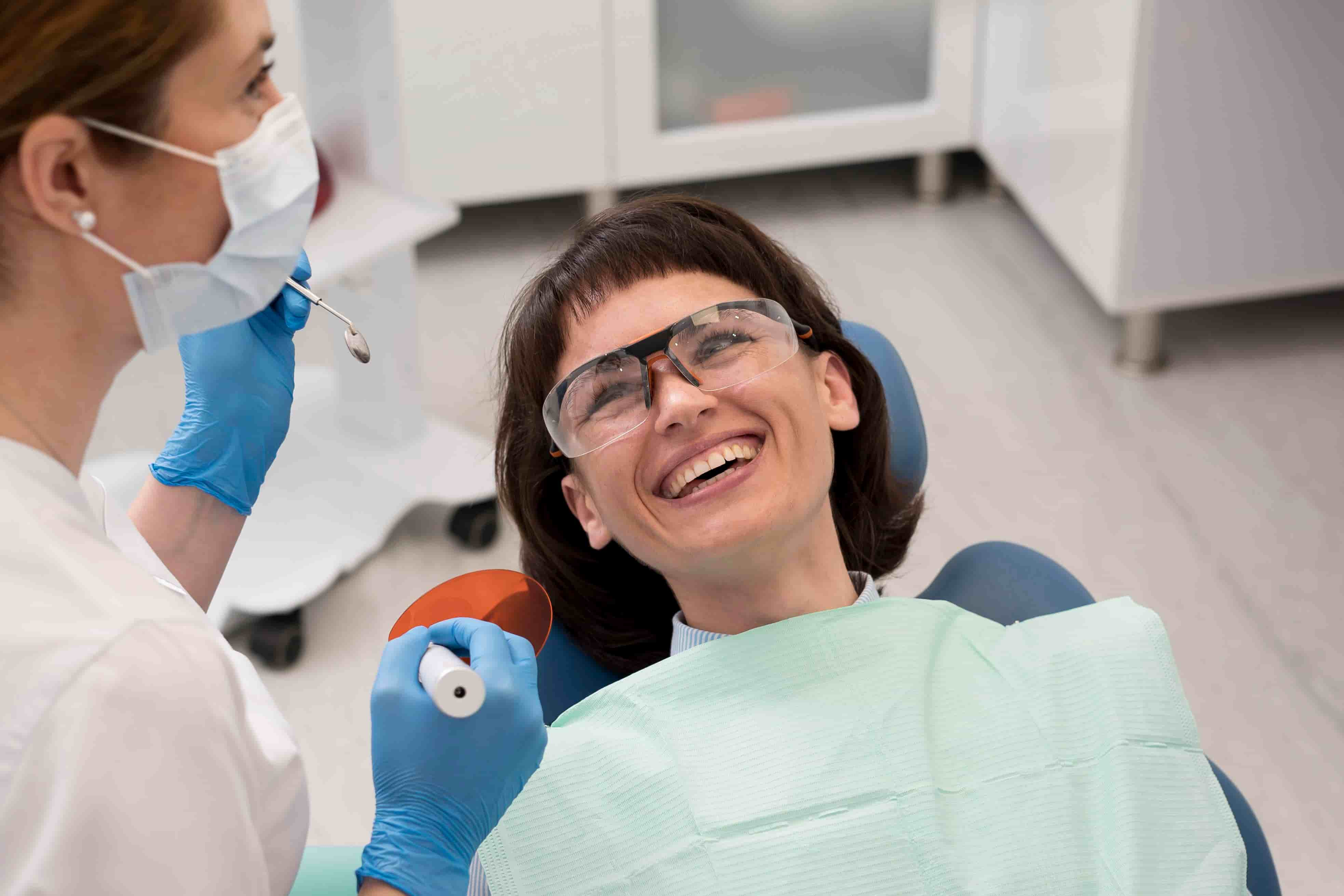
IV Sedation
IV sedation in dentistry is a method used to help adults feel relaxed during dental procedures. This technique involves giving sedative medication through an IV, offering a deeper level of relaxation compared to other methods like oral sedatives or laughing gas. The patient remains awake but in a very relaxed state, often with little memory of the procedure afterwards.
IV sedation is typically considered safe for adults and older teenagers. It is generally not used for young children since managing IV drugs in smaller bodies is more complicated. For children who cannot tolerate dental treatments with less invasive methods, sleep dentistry using general anaesthesia is often recommended instead. This ensures the child is fully asleep, allowing for safe and effective treatment.
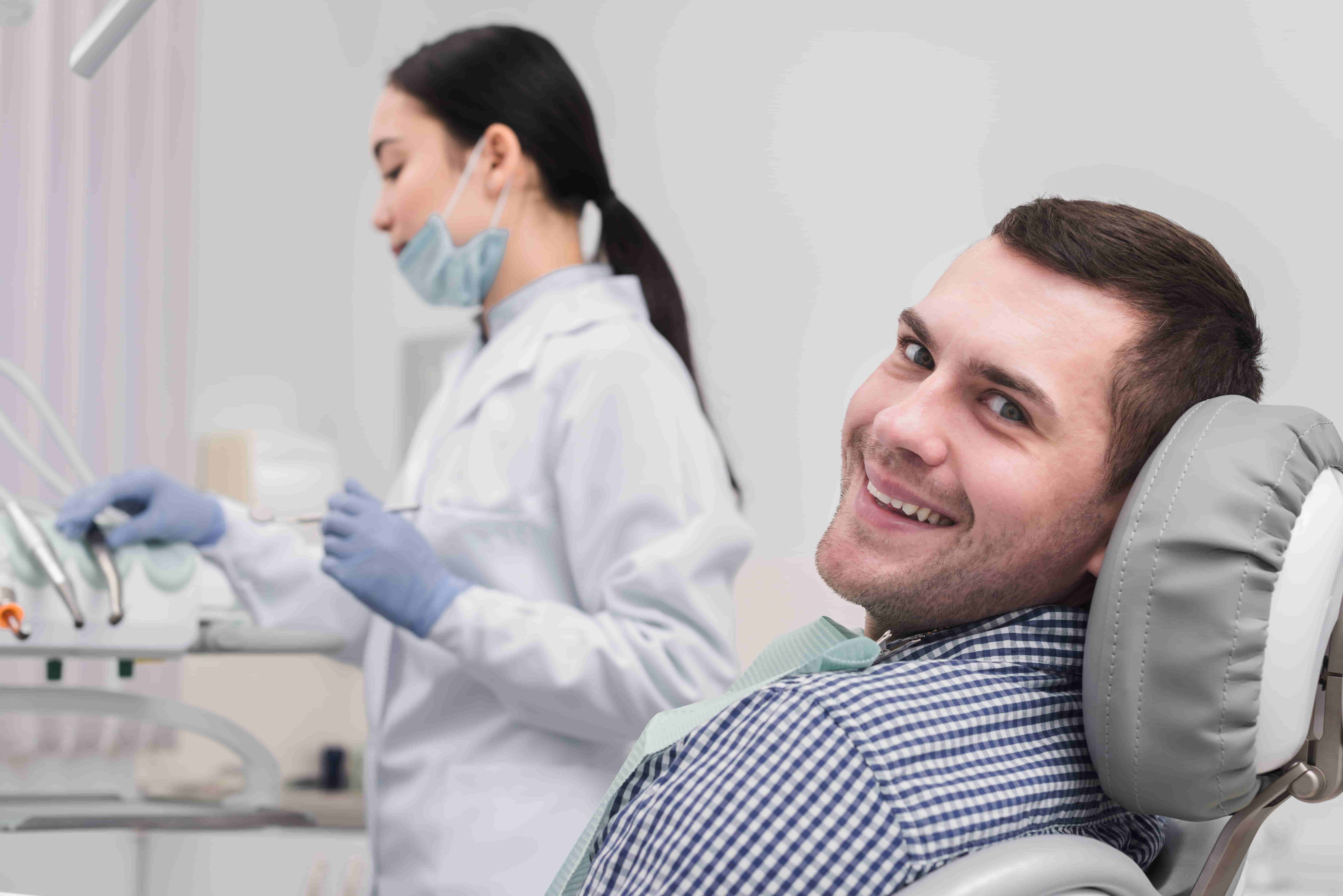
Twilight Sedation
Twilight sedation is a type of IV sedation used to help adults with significant dental anxiety and phobia. Sedative medication is given through an IV, putting the patient in a very deeply relaxed state. While under twilight sedation, patients are conscious but drowsy and dreamlike. They can respond to verbal cues but typically don't remember much about the procedure. This form of sedation reduces stress and fear, allowing the dentist to perform necessary procedures comfortably and efficiently.
Sleep dentistry, especially using general anaesthesia, can be costly. However, there are payment options to make it more affordable:
Humm and AfterPay
These allow you to spread out the treatment cost over time instead of paying upfront
Compassionate Superannuation Release
Our dental coordinator can help you access your superannuation funds early to cover necessary but unaffordable dental procedures. This requires meeting certain criteria and ATO approval.
These options can significantly reduce the financial burden of sleep dentistry.
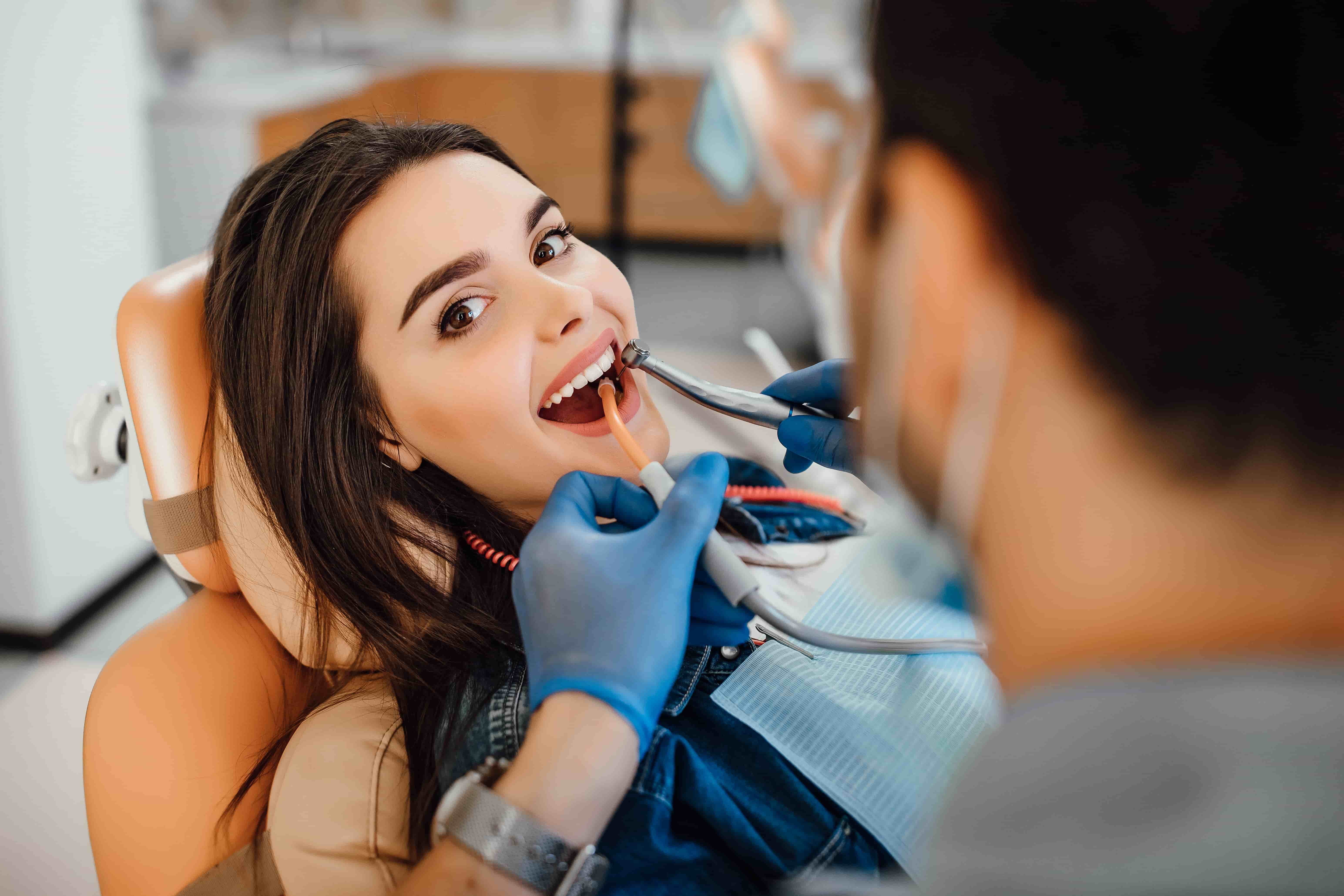
Are you avoiding getting necessary dental treatment because you feel anxious about going to the dentist? You should know that putting off essential dental care can put your dental health at risk and lead to unnecessary complications. These complications may then require surgical procedures and multiple visits to the dental clinic to get fixed.
Delaying dental treatments can lead to several damaging results and risks:
Minor issues can turn into serious problems, like cavities becoming root infections.
Untreated dental problems often become more painful over time.
More severe conditions require more complex and expensive treatments to fix.
Neglected dental health can allow infections to develop that can spread to other parts of the body
Delaying treatment for gum disease or tooth decay can eventually lead to losing teeth.
Poor oral health is linked to other health issues like heart disease and diabetes.

Getting prompt dental care is essential for maintaining good oral health and overall health. Putting it off can allow small problems to become big, expensive issues down the road.